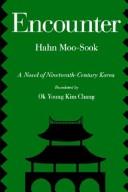| Listing 1 - 2 of 2 |
Sort by
|
Book
ISBN: 1283291878 9786613291875 0520950356 9780520950351 9780520267862 0520267869 9781283291873 6613291870 Year: 2011 Publisher: Berkeley University of California Press
Abstract | Keywords | Export | Availability | Bookmark
 Loading...
Loading...Choose an application
- Reference Manager
- EndNote
- RefWorks (Direct export to RefWorks)
In this path-breaking book, Tong Lam examines the emergence of the "culture of fact" in modern China, showing how elites and intellectuals sought to transform the dynastic empire into a nation-state, thereby ensuring its survival. Lam argues that an epistemological break away from traditional modes of understanding the observable world began around the turn of the twentieth century. Tracing the Neo-Confucian school of evidentiary research and the modern departure from it, Lam shows how, through the rise of the social survey, "the fact" became a basic conceptual medium and source of truth. In focusing on China's social survey movement, A Passion for Facts analyzes how information generated by a range of research practices-census, sociological investigation, and ethnography-was mobilized by competing political factions to imagine, manage, and remake the nation.
Social surveys --- Community surveys --- Surveys, Social --- Social sciences --- Surveys --- History --- Research --- China --- Social policy. --- Social conditions --- 20th century china. --- asia pacific modern. --- asian culture. --- asian history. --- asian politics. --- asian studies. --- chinese dynasty. --- chinese education. --- chinese empire. --- chinese ethnography. --- chinese history. --- chinese imperialism. --- chinese intellectuals. --- chinese politics. --- chinese society. --- chinese tradition. --- confucian school. --- east asian science. --- eastern asia. --- evolution of china. --- global colonialism. --- global social science. --- modern china. --- neo-confucian school. --- schools of thought. --- social sciences research. --- world history books.

ISBN: 9786612356117 1282356119 0520911083 0585130612 9780520911086 9780585130613 9780520073807 0520073800 9780520073814 0520073819 0520073800 0520073819 Year: 1992 Publisher: Berkeley, Calif. University of California Press
Abstract | Keywords | Export | Availability | Bookmark
 Loading...
Loading...Choose an application
- Reference Manager
- EndNote
- RefWorks (Direct export to RefWorks)
This historical novel, Encounter (Mannam), by Hahn Moo-Sook, one of Asia's most honored writers, is a story of the resilience in the Korean spirit. It is told through the experiences of Tasan, a high-ranking official and foremost Neo-Confucian scholar at the beginning of the nineteenth century. Because of Tasan's fascination with Western learning, then synonymous with Catholicism, he is exiled to a remote province for 18 years. In banishment he meets people from various social and religious backgrounds-Buddhist monks, peasants, shamans-whom he would not otherwise have met. The events of Tasan's life are effectively used to depict the confluence of Buddhist, Neo-Confucian, Taoist, and shamanistic beliefs in traditional Korea.A subplot involves three young sisters, the daughters of a prominent Catholic aristocrat, and affords the reader vivid glimpses into Yi-dynasty women's lives, particularly those of palace ladies, scholars' wives, tavern keepers, shamans, and slaves. In contrast to the long-held Confucian stereotype of female subservience, this story illustrates the richness of women's contribution to Korean culture and tradition.Encounter's detailed narrative provides a broad and informed view of nineteenth-century Korea, making it a highly useful book for courses on Korean literature and society. It will also be an engaging read for lovers of historical fiction.
LITERARY CRITICISM / General. --- Chŏng, Ha-sang, --- Chŏng, Yag-yong, --- 丁夏祥, --- Chŏng, Tasan, --- Chŏng, Yong, --- Tei, Jaku-yō, --- Chŏng, Yŏyudang, --- Chong, Yagyong, --- Da-San, --- Tasan, --- Yŏlsu, --- Jung, Yak-yong, --- 丁 若鏞, --- 丁若鐮, --- 정 약용, --- 정약용, --- Ding, Ruoyong, --- Korea --- K9717.60 --- Korea: Literature -- fiction and prose -- works by individual authors -- modern (1860s- ) --- Asian literature --- Biographicalfiction. --- Saam, --- 19th century. --- academic. --- american influence. --- americanization. --- aristocracy. --- asian history. --- asian literature. --- belief. --- buddhism. --- buddhist. --- catholicism. --- christian. --- christianity. --- class structure. --- dynasty. --- exile. --- faith. --- historical fiction. --- historical. --- justice. --- korea. --- korean culture. --- korean history. --- korean literature. --- korean tradition. --- law and order. --- monks. --- neo confucian. --- religion. --- religious studies. --- scholar. --- shaman. --- western world. --- world history. --- world religion.
| Listing 1 - 2 of 2 |
Sort by
|

 Search
Search Feedback
Feedback About UniCat
About UniCat  Help
Help News
News